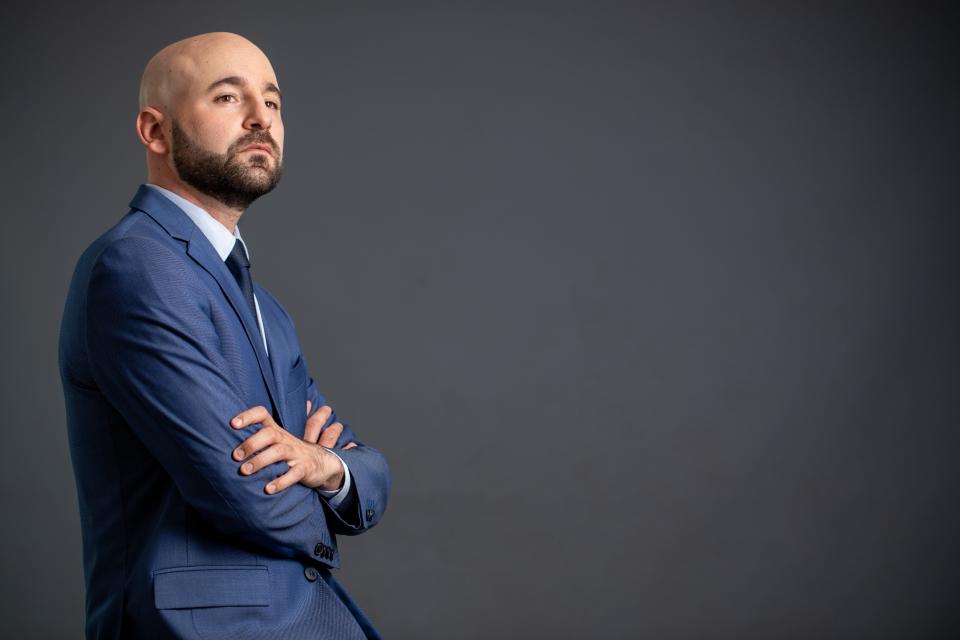The world's most accurate economist told us his forecasts for the US economy in 2024, the biggest risks he's watching, and a trade to take advantage of

Market Securities' Christophe Barraud was named the top economic forecaster by Bloomberg.
He has been one of the best in the world at predicting what happens to the economy for years.
He believes the US economy will hold up well in 2024, and spotted an investment opportunity.
It hasn't been easy to anticipate the economy's moves lately. The last four years alone have brought enough twists and turns to fill an economics textbook: a pandemic, supply-chain snafus, inflation, easy then restrictive monetary policies, and much more.
But throughout all that, Christophe Barraud somehow managed to stay one step ahead. Bloomberg ranked Barraud as the top forecaster of the US economy in 2022 and 2023 — and every year from 2012 through 2020. He was also the top forecaster of the Eurozone economy in 2022, and of China's economy from 2017 through 2020.
If economic predictions are more art than science, Barraud is Picasso. The chief economist and strategist at Market Securities is looking to continue his hot streak of correct calls in 2024. He recently discussed with Business Insider his forecast for the US economy and how investors should approach the new year.
The US economy will hold up better than expected
Optimism abounded at the end of 2023 as market watchers realized that bad economic readings at the end of the year were good news for the Federal Reserve's efforts to beat inflation. Optimism abated in the first weeks of the new year, however, as investors came to terms with the fact that the Fed may not ease monetary policy anytime soon.
Barraud was never as optimistic as some, even last year. "I was surprised by the resilience of the US economy because, at the beginning of 2023, I was expecting some kind of recession," he said. "At some point, it seems that the US economy was stronger than expected, especially in the third quarter. It was partly explained by transitory factors, but overall, if you just look at what happened in the fourth quarter, of course consumption slowed a bit, but it should remain quite strong and quite in line with the historical standard."
Barraud believes that US GDP will end the year up 2.5%, slightly higher than the consensus expectation of 2.4%.
That's not to say it will be an easy road. As Barraud pointed out, savings have dwindled, student loan payments have restarted, wages are normalizing, and credit is still tight.
He's also wary of any exogenous shocks to the US economy. Barraud agrees with surveys that show geopolitical tensions, particularly in the Middle East, represent the biggest threat to the global economy.
"To be honest, right now it's the political situation and the Middle East situation because it evolves quite quickly and the reality is that people are not able to forecast this kind of thing usually; everyone is surprised by that," he said of the biggest threats to the economy.
But if all goes well, Barraud anticipates that investor optimism that the Fed has beaten inflation will be rewarded with a pivot in monetary policy sometime this year — just not as soon as investors may want.
"I won't say that the battle against inflation is over, but if there is no exogenous shock, the central scenario is to see a CPI between 2% and 2.5% around the third quarter," Barraud said.
As for when the Fed may cut rates: "My guess is that they are more likely to do it in May," he said. "I think March is a bit early, especially if you look at recent comments from several policymakers. March is not excluded, but it will imply some significant deterioration of the labor market, which I don't expect right now."
But the story is different in the Eurozone, Barraud noted, which will have to continue the fight against inflation for a little longer than the US. He doesn't think the ECB will be able to cut rates until June at the earliest — and that could provide investors with an arbitrage opportunity.
"Based on the fact that the ECB is likely to cut rates after the Fed, that maybe they will keep lowering their balance sheet and not announce the end of quantitative tightening like the Fed, we will see some kind of rate differential supporting the euro against USD, maybe a balance sheet differential that could also support the euro," Barraud said. "And that's why I think that maybe the euro could clearly outperform USD in at least in the short term, but maybe for all of the year."
"But we don't need to see some kind of geopolitical shock," he added. "That's a key risk. Otherwise, people will return to USD as a safe haven."
Read the original article on Business Insider
